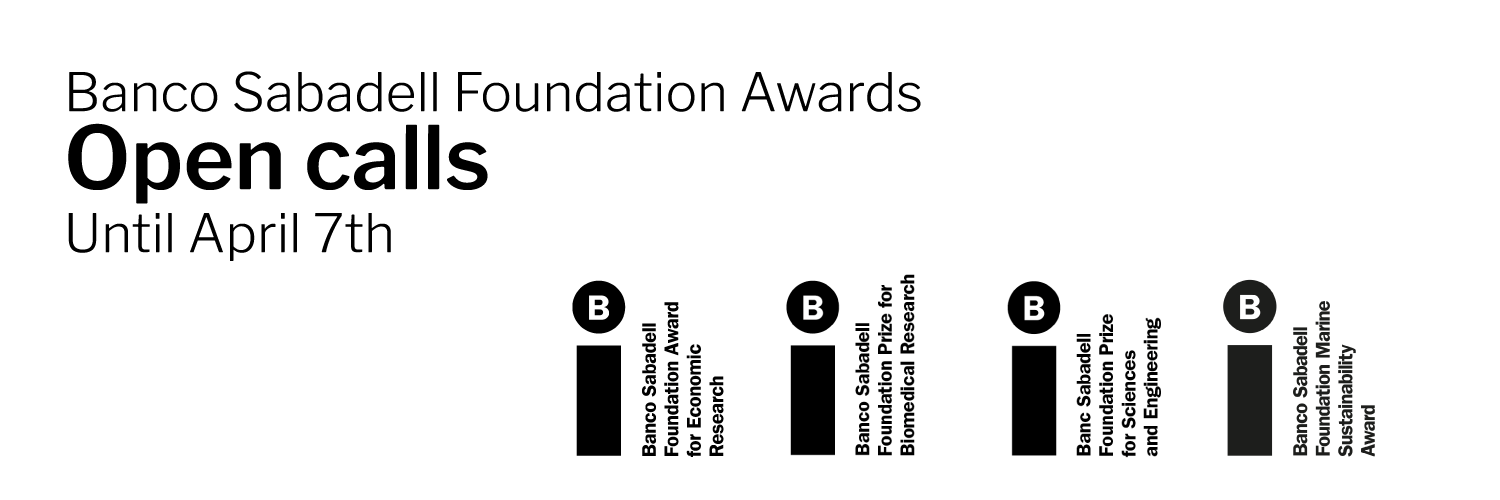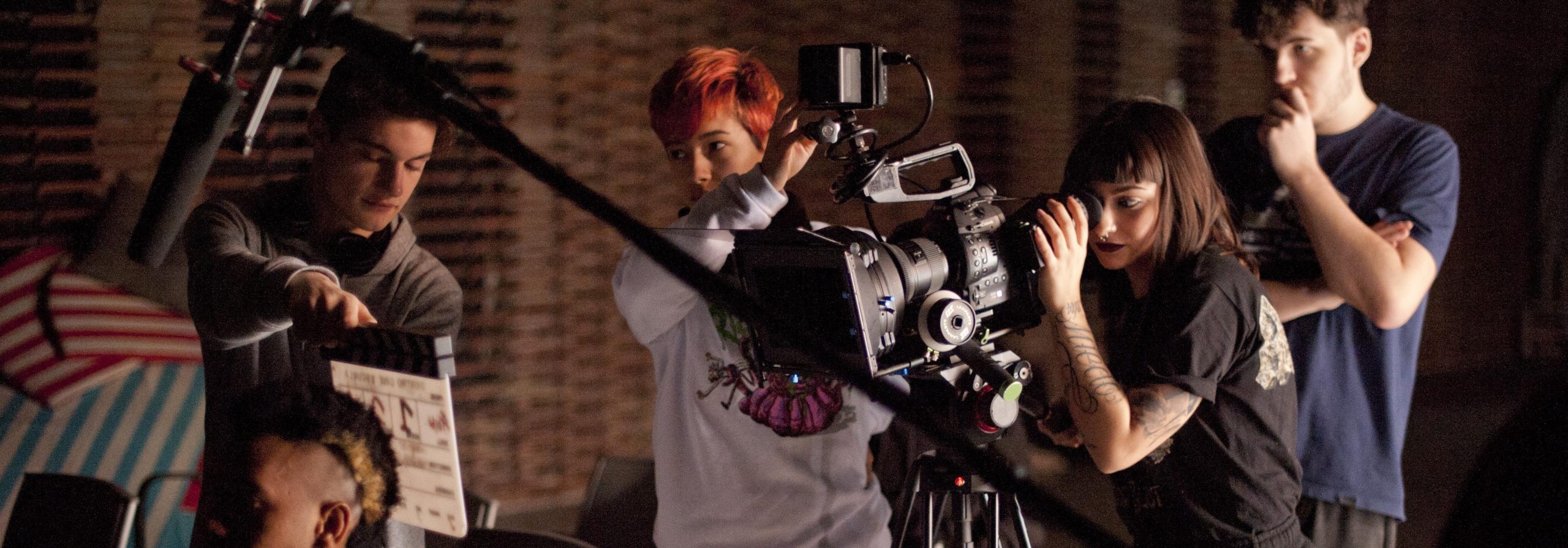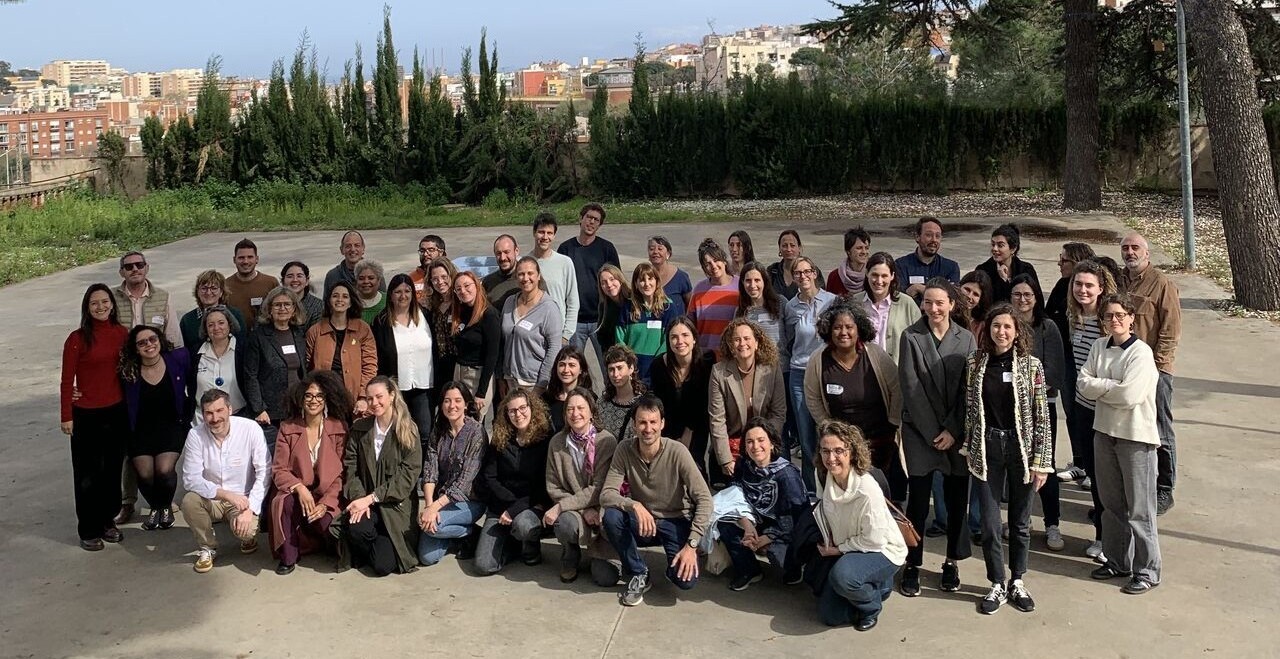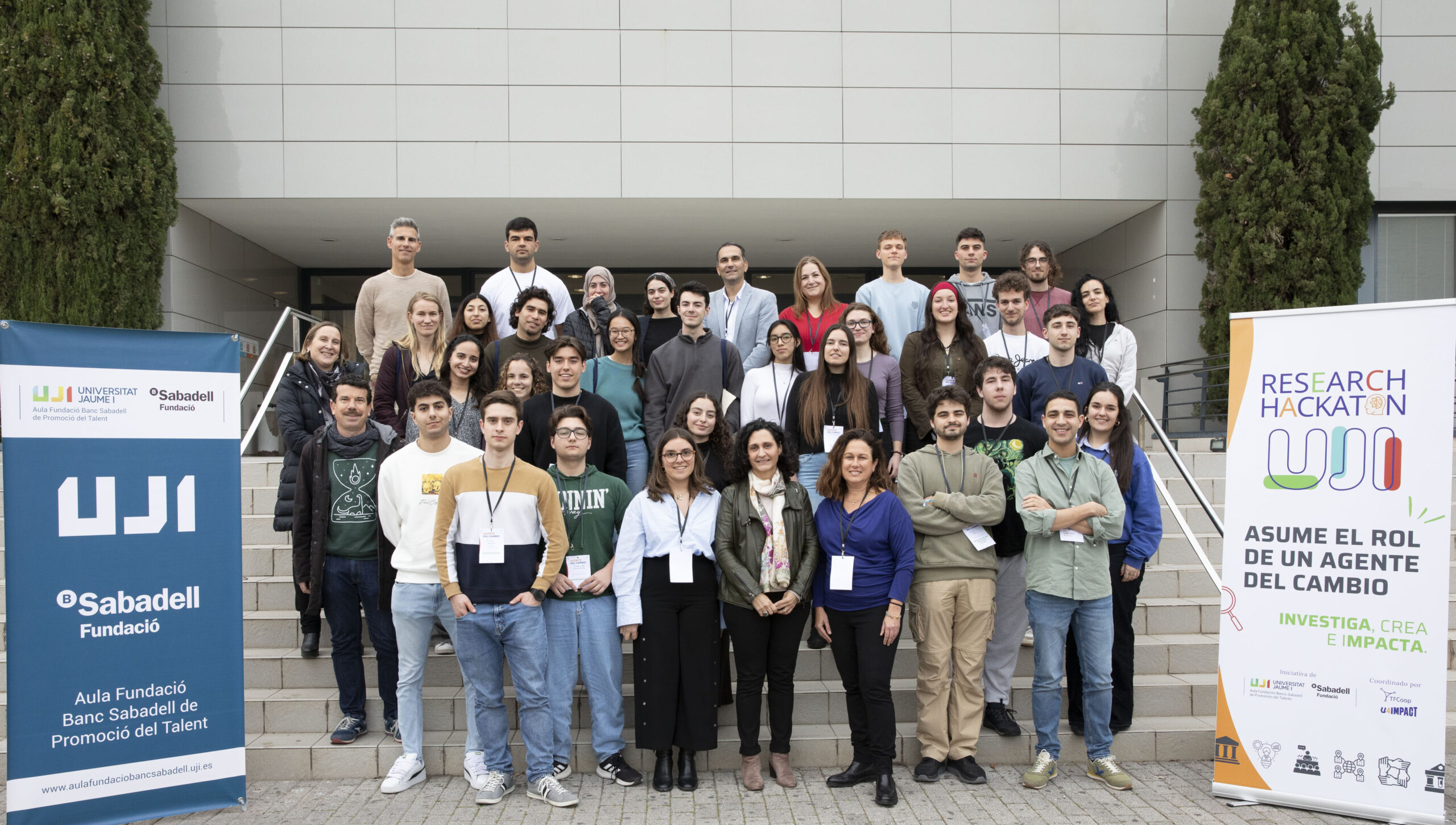
‘Think of innovative solutions to address social challenges’. That was the goal of the 1st edition of the UJI ‘Research Hackathon’ organised by the Banco Sabadell Foundation courses to foster talent imparted at the Universitat Jaume I (university), in which 30 students split up into teams to brainstorm ways of resolving various challenges. The initiative boosted their learning and developed their skills related to creativity and collaboration in research processes.
Throughout the event, participants engaged in a role-playing exercise, acting as different social partners: public institutions, entrepreneurs, companies, non-profit organisations, representatives from the world of academia and research, and representatives from news outlets.
The challenges in question related to new technology and individualism; population ageing and the sustainability of the pensions system; the use of social media and mental health; accessibility among rural communities to good-quality healthcare; and the reduction of food waste in the supply chain.
The students, supported by three mentors from Banco Sabadell, tackled the challenges in various stages, the first of which involved research and contextualisation, followed by brainstorming and selection of ideas, before moving on to design and prototyping and, lastly, communication.
“In just a few hours, our team worked on a solution to make quality healthcare more readily available to rural communities. This impactful challenge required us to think quickly, coordinate efforts and combine talent from various disciplines. We were also lucky to have the guidance of a great mentor, whose knowledge and support were vital to the process”, explained Pau Montagut-Bofí, who is studying Robotic Intelligence at the UJI.
“It was truly awe-inspiring to be part of the atmosphere that was created as the day went on. The ambition, creativity, teamwork, discipline… Everything that the teams brought to the table was incredibly inspirational. And it really gave everyone an energy boost.” Javier Sánchez Setién, a branch manager at Banco Sabadell and mentor at the Research Hackathon
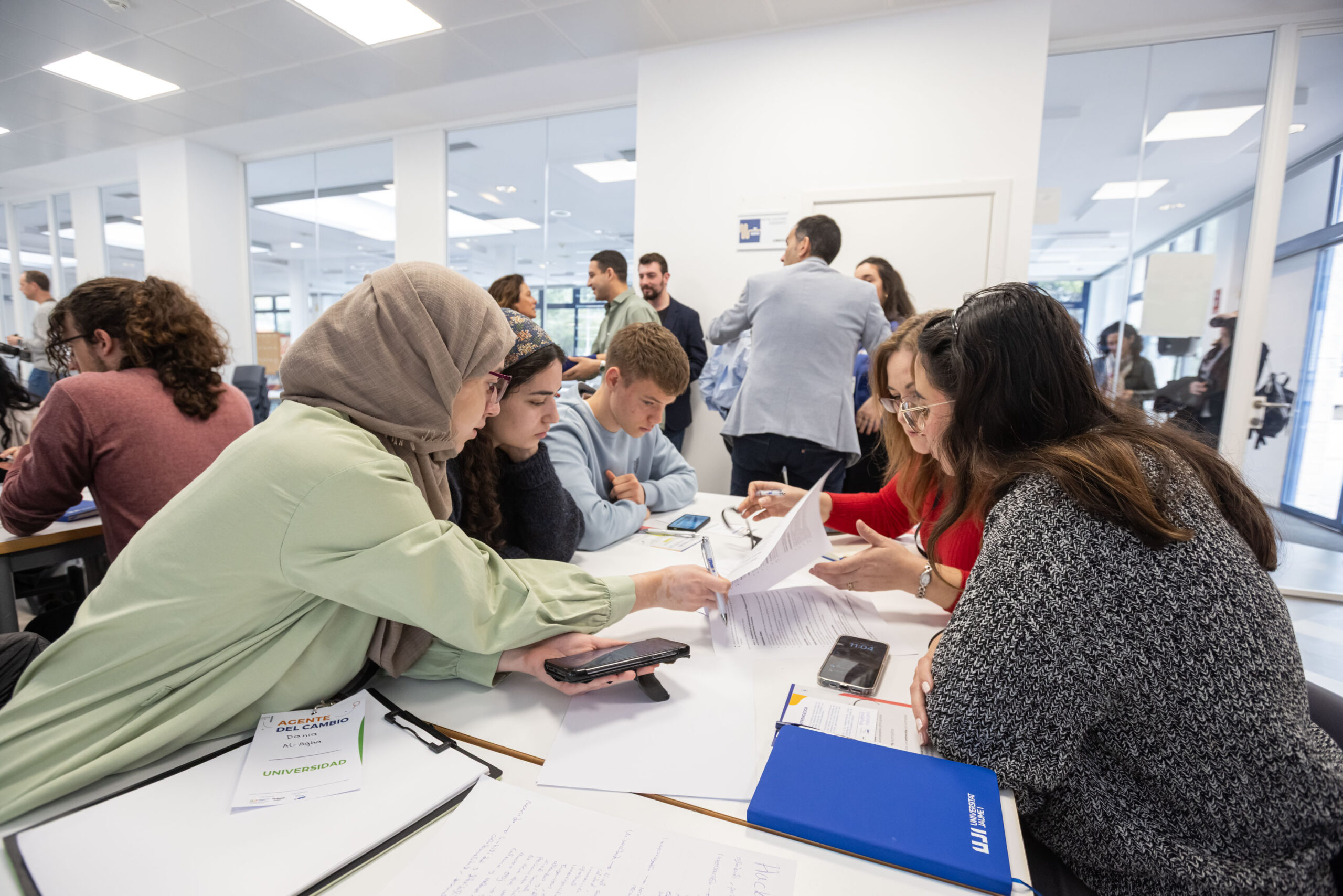
Javier Sánchez Setién, a branch manager at Banco Sabadell, was the mentor for Pau’s team, and praised the energy and good environment that he experienced on that day, saying “I’m still blown away by how extraordinary the experience was. The challenges put to the students were incredibly complex and ambitious. But the teams took it all in their stride and fully embraced those challenges. It was truly awe-inspiring to be part of the atmosphere that was created as the day went on. The ambition, creativity, teamwork, discipline… Everything that the teams brought to the table was incredibly inspirational. And it really gave everyone an energy boost. We definitely also got back more than we put in. I was like a kid in a candy store, it was a really great day. A superb experience!”
The winning team of the Research Hackathon was formed of Kristine Grindland, Lara Ying Pinyana Salvador, Carlos Broch Cubedo, Christopher Morales Fuentes and Katherine Quezada.
The event ended with a conference about innovation and soft skills given by Klaus Ulrich, a professor and researcher in the areas of finance, fintech, macroeconomics and entrepreneurship. The winning project designed an application to promote reduced use of social media in order to improve mental health and a healthier digital lifestyle.
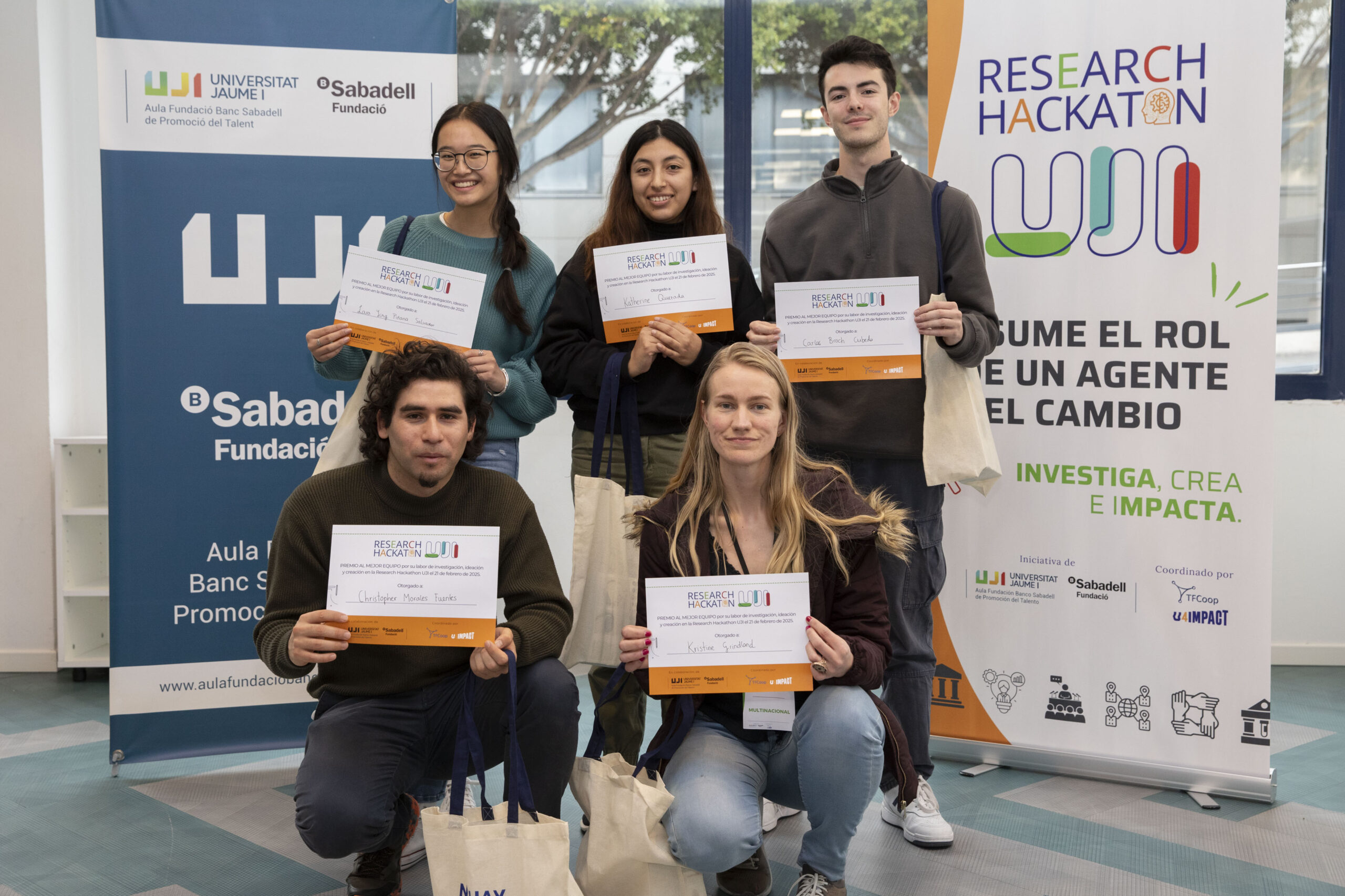
Other proposals that emerged during the brainstorming process at the UJI Research Hackathon included:
– Application to promote reduced use of social media in order to improve mental health and a healthier digital lifestyle. The app uses a ‘system of cards’ and gamified activities that generate dopamine in order to encourage people to spend less time on social media. The expected benefits include improved mental health, stronger interpersonal relationships and increased productivity.
– Application to reduce food waste by connecting consumers and retailers, offering discounts on fresh produce that is nearing its expiration date. The development process includes a research phase, development of the MVP, beta testing, official launch and continuous growth. The expected benefits include reduced waste, economic savings and the promotion of sustainable consumption habits.
– Technological tool to make quality healthcare more readily available to rural communities through various strategies. These include giving a more prominent role to pharmacists, allowing medical students to temporarily work in rural areas, and financing their studies in exchange for work placements in these areas. The expected benefits are shorter distances to health services, improved primary care and an increased number of healthcare professionals working in rural areas.
– Project on population ageing and the sustainability of the pensions system. The proposed solutions include the creation of a sovereign fund and the introduction of an increased retirement age in certain sectors. The ideas put forward in the project are designed to help universities analyse and monitor the socioeconomic situation and to help non-profit organisations to protect workers in vulnerable situations.
– Platform to tackle hyper-individualism and lack of empathy due to improper use of social media. To tackle this problem, the platform aims to improve the quality of interpersonal relationships through services that promote the correct use of technology, as well as workshops and awareness-raising activities. These efforts will be communicated through the radio, the press, social media and email and they will involve the participation of professionals, university volunteers, associations and companies, also offering co-curricular experiences and tax benefits.
